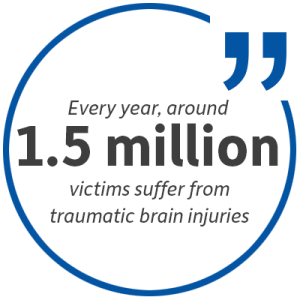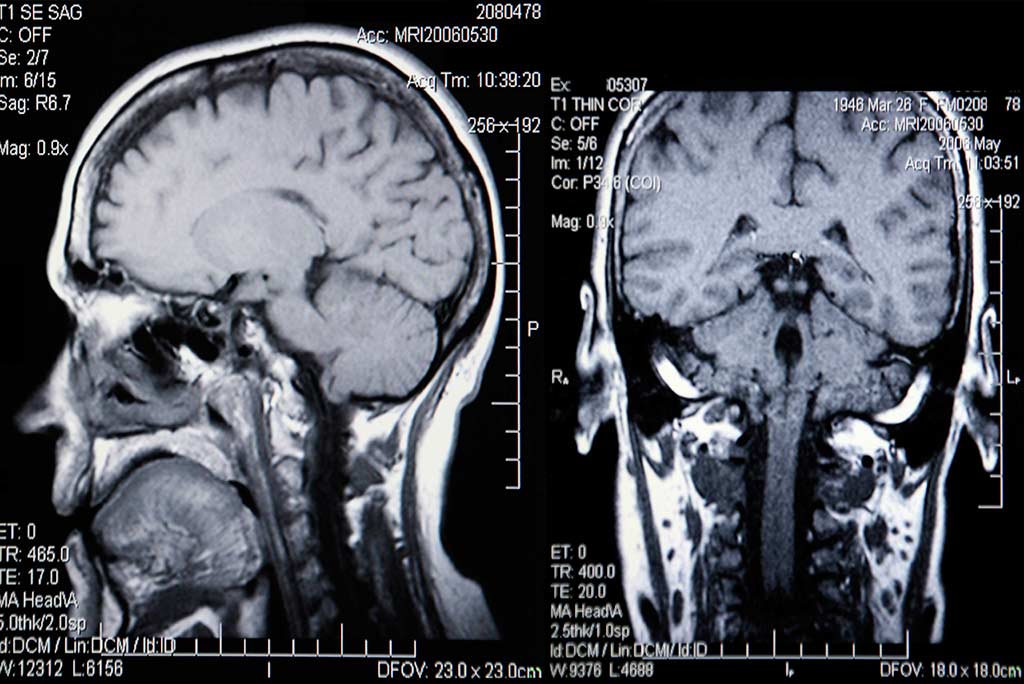
Every year, around 1.5 million victims suffer from traumatic brain injuries (TBIs) in the United States, with the most common type being concussions. A concussion is a mild type of TBI that’s caused by a blow to the head or a sudden jolt that disrupts the normal functioning of the brain. Although common, concussions can be incredibly serious, especially if a person sustains multiple concussions in their lifetime.
Many of those struggling with this affliction can make a full recovery within only a few weeks. But some suffer from prolonged concussion symptoms and develop post concussion syndrome (PCS), also called post concussive disorder. Tragically, at least 15% of concussion victims develop this condition, and it can seriously impact a person’s physical and mental well-being.
In this blog, we answer the question, “What is post concussion syndrome?” and we discuss what you need to know about the condition.
What is Post Concussion Syndrome?

Post concussion syndrome refers to the condition in which individuals continue to experience prolonged and persistent concussion symptoms following a head injury.
Unfortunately, there’s a great deal that medical professionals don’t know about PCS, including what causes it, exactly. Victims may develop PCS as a result of structural damage to their brains, but some medical researchers believe that it’s a psychological condition caused by trauma. Further, some hypothesize that a combination of physical and psychological factors can result in PCS.
How Do I Know If I Have Post Concussion Syndrome?
Regardless of its exact underlying cause, post concussion syndrome can manifest in serious symptoms. Those struggling with this condition often have prolonged concussion symptoms as well as other debilitating effects. Common symptoms include:
- Headaches
- Dizziness and vertigo
- Nausea
- Issues with balance
- Sensitivity to light and noise
- Fatigue
- Changes in sleep patterns, including sleep disturbances
- Difficulty with concentration, memory, and other cognitive problems
- Changes in taste and smell
- Blurred or double vision
- Emotional changes
- Mood swings
- Ringing in the ears
- Depression
- Anxiety
- Apathy
You should seek medical attention immediately if you notice any of these symptoms after a head injury. If you experience three or more of the symptoms three months after your initial head injury, your doctor will likely diagnose you with post concussion syndrome.
What Causes Post Concussion Syndrome?
Many different types of accidents can cause a victim to sustain a brain injury and develop post concussion syndrome. Some common accidents or events that can cause this condition include:
- Motor Vehicle Accidents: Car accidents, motorcycle accidents, and other collisions involving vehicles can result in concussions and, in turn, post concussion syndrome.
- Slips and Falls: Slips and falls on hard surfaces can cause head injuries and eventually post concussion syndrome.
- Sports-Related Accidents: Contact sports, such as football, hockey, soccer, and basketball, carry a risk of concussions. Collisions, impacts, or falls during these activities can cause post concussion syndrome.
- Assault or Physical Altercations: Being punched, kicked, or struck in the head can result in a concussion and subsequent post concussion syndrome.
- Work-Related Accidents: Accidents that occur in occupational settings, such as construction sites, factories, and other work environments, can lead to head injuries and post concussion syndrome.
- Recreational Accidents: Activities like biking, skiing, snowboarding, and skateboarding can result in accidents that cause concussions and subsequent post concussion syndrome.
How Long Does Post Concussion Syndrome Last?
While most people recover from concussions within a few weeks, some individuals develop post concussion syndrome and continue experiencing symptoms for an extended period, such as weeks, months, or even years. Tragically, some victims may suffer from this disorder for the rest of their lives.
Factors that may impact the duration of your condition include the severity of the initial injury, your age if you’ve suffered from previous TBIs, and other underlying health conditions.
Recovering Compensation for Post Concussive Disorder
If you’ve suffered from a concussion and have developed post concussion syndrome as a result of another party’s negligence, you can file a claim to recover money for past and future medical bills and other damages. Your condition may require expensive treatments that include imaging services, prescriptions, cognitive-behavioral therapy, and physical therapy, and you shouldn’t have to pay out of pocket for these expenses.
Additionally, if you’re suffering from severe post concussion syndrome, you may struggle to work and earn a living wage. The persistent symptoms of post concussion syndrome, such as headaches, cognitive difficulties, and fatigue, can make it difficult to concentrate, remember information, and perform tasks effectively.
The condition may also seriously impact your ability to socialize and engage in pre-injury hobbies and activities. Plus, PCS’s symptoms may lead to or contribute to serious mental health conditions, such as depression and anxiety.
Depending on your unique case and how the injury impacts your life, you may be able to recover damages for lost wages, loss of future earnings, emotional distress, loss of enjoyment of life, and pain and suffering.
Contact an Indianapolis Brain Injury Attorney Today
If you’ve suffered from a collision or another type of accident that left you with a concussion and post concussion syndrome, you need to get in touch with a lawyer as soon as possible.
For experienced head and brain injury attorneys in Indianapolis, contact Crossen Law Firm. We’ll work to get you the money you deserve for your injuries, and our team will negotiate on your behalf to maximize your compensation.
You can get started with your case today by calling us at 317-401-8626, or you can contact us online here.

 317-401-8626
317-401-8626 
.jpg)